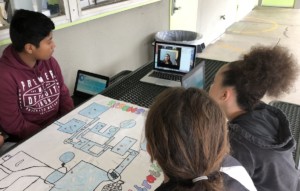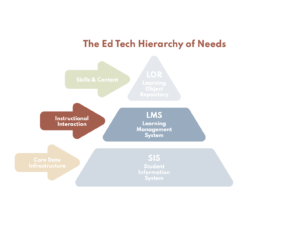6 EdTech Tools for Modernizing Assessment

By Jayme Cook
Teaching and learning assessments have changed drastically over the past two decades. Twenty years ago, an end-of-year summative assessment would likely have involved a No. 2 pencil and a Scantron sheet, and gauging a student’s comprehension based on the score would have been as black and white as the answer sheet.
Older methods of assessment were limited in that they generally compared each student to his or her peers. Contemporary education trends have moved away from such cut and dry practices and have headed toward individualistic assessment approaches that focus on comparing each student or teacher, yielding a more accurate representation of an individual’s comprehension and application of concepts.
With this shift in paradigm comes new tech tools for customizing formative and summative assessments that better gauge the learning progress by comparison to the level of comprehension originally recorded for the individual.
Formative Assessment EdTech
Formative assessments examine the progress of a student’s learning as it occurs. Ideally, formative assessments occur during a lesson to help the instructor see who is following along and who is struggling to understand the content. In the past, progress assessments were tedious and time consuming, and many teachers would try to cram in a quick evaluation at the end of a class period. This takes time away from instruction and the teacher would not be able to address issues until the following class period.
Fortunately, with modern tech, teachers can analyze formative reports in real time during class and respond immediately. Here are four edtech tools for this type of assessment:
- BubbleSheet: This app is set up for students to complete common assessment via iPad or iPhone quizzes. Students complete the quiz as the teacher goes through the lesson plan.
- Socrative: This software allows students to participate in games and exercises relevant to the teaching material by using a laptop, tablet or smartphone. It promotes engagement in class concepts but utilizes a different format than traditional pop-quizzes.
- iClicker: A handheld device that students use to click in and answer questions and participate in class polls. Instructors then receive all data in real time on the screen in front of them, allowing the them to immediately gauge how many students have understood a concept and clarify any concepts causing struggle before moving on to the next subject.
- Nearpod: This program uses interactive slideshows in multimedia format that encourages students to participate and provide feedback.
Summative Assessment EdTech
The assessment of cumulative concepts and information is traditionally a means of gathering results from a class and looking for an average to assess where the class lies on the scale of comprehension. New ideology places emphasis on the starting point and ending point of each individual student instead of an average of all student scores in order to evaluate student and teacher success. For these assessments, a preliminary test would be given at the start of class and a project assigned at the end.
Note: When collecting this data it is imperative that it be stored properly and backed up in the case of data loss. Set it and forget it software, such as Mozy, makes this easy. The end-of-year results mean nothing without the beginning-of-year scores to compare them to.
- Posterini: A new take on a classic mode of assessment, instead of cutting out pictures and phrases from magazines and gluing them to poster board, Posterini allows students to virtually cut images and text and paste them to a poster board layout on their screens.
- The Tweeted Times: This program allows students to use their Twitter feeds as content for creating an original newsletter. The program ranks tweets by popularity allowing for coverage of current events and social issues.
As we move forward into a new era of education, it doesn’t make sense to keep using the old forms of assessment that provided limited understanding of a student’s comprehension. It’s time to focus assessment on understanding students’ true abilities.
For more, see:
- 10 Ways Educators Can Use SEL Measurement and Assessment for Student Success
- Reclaiming Assessment for Deeper Learning
- It’s Time For A New Assessment System
Jayme Cook is an English instructor in Phoenix, Arizona. Follow her on Twitter: @JaymeACook.







Nguyễn Thị Thu Thảo
Al is very convenient for teachers in teaching